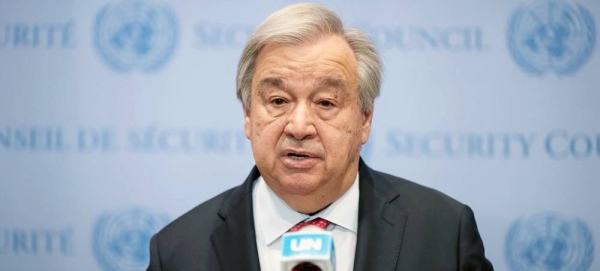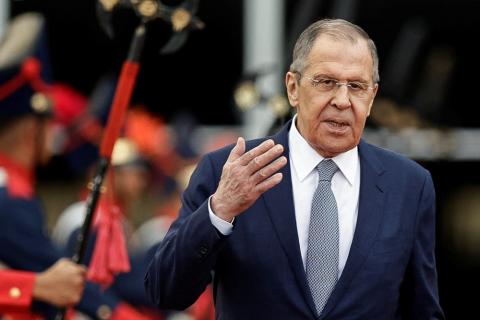
UN Secretary-General António Guterres said on Monday that he deeply regrets Russia’s decision to terminate the Black Sea Initiative, in effect ending a “lifeline” for hundreds of millions worldwide facing hunger and spiraling food costs.
Following weeks of negotiations, the UN-brokered accord that facilitated the export of more than 30 million tons of Ukrainian grain to global markets via three Black Sea ports expired on July 17.
“Today’s decision by the Russian Federation will strike a blow to people in need everywhere,” said Guterres, speaking to journalists at UN Headquarters in New York.
The Black Sea initiative was agreed by Russia, Ukraine, Türkiye and the UN in Istanbul last July along with a parallel accord between the UN and Russia on grain and fertilizer exports from that country.
By its decision, Russia has also withdrawn security guarantees for ships navigating in the northwestern part of the Black Sea.
“Ultimately, participation in these agreements is a choice. But struggling people everywhere and developing countries don’t have a choice,” Guterres said.
The grain initiative and the Memorandum of Understanding with Russia were “a lifeline for global food security and a beacon of hope in a troubled world,” he said.
“At a time when the production and availability of food is being disrupted by conflict, climate change, energy prices and more, these agreements have helped to reduce food prices by over 23 percent since March last year,” he added.
He noted that the World Food Program (WFP) shipped 725,000 tons to support humanitarian operations in Afghanistan, the Horn of Africa and Yemen, relieving hunger in some of the world’s hardest hit regions.
Guterres said he was aware of obstacles that remained in the foreign trade of Russian food and fertilizer products and that he had written to President Vladimir Putin with a new proposal to keep the Black Sea Initiative alive.
Quoting extensively from the letter, he noted that since the signing of the Memorandum of Understanding, and measures adopted by the Government, Russia’s grain trade had achieved high export volumes and fertilizer markets were stabilizing, with Russian exports nearing full recovery.
The letter also outlined UN action to facilitate trade amid sanctions against Russia, such as securing licenses from the United States, the United Kingdom and the European Union, and providing clarifications and guidance to the private sector.
The Secretary-General’s letter also explained how the UN has worked to find “dedicated solutions” across the banking and private sectors, which included building a “bespoke payments mechanism” for the Russian Agricultural Bank outside the SWIFT international banking network.
Moscow had lighted that SWIFT access by the bank was a key factor influencing its decisions, according to the letter. Guterres said he was deeply disappointed that his proposal went unheeded.
Though lamenting the Russian decision, the Secretary-General was adamant that it would not stop efforts to get food products and fertilizers from both Ukraine and Russia to international markets.
Guterres said he will remain focused on the goal of advancing global food security and global food price stability, “taking into account the rise in human suffering that will inevitably result from today’s decision.”
Responding to the collapse of the landmark deal, UN General Assembly President Csaba Kőrösi reiterated his call for the parties to return to dialogue.
“The challenges are complex, they are interconnected, but they are not insurmountable. It is not too late,” according to a statement issued by his Spokesperson.
Kőrösi deeply regretted Moscow’s decision to withdraw from the Initiative which he said “has provided a lifeline to millions of people hit hard by the global food security crisis triggered by the war in Ukraine.”
He also called for an end to the conflict, in line with international law and the UN Charter. — UN News












